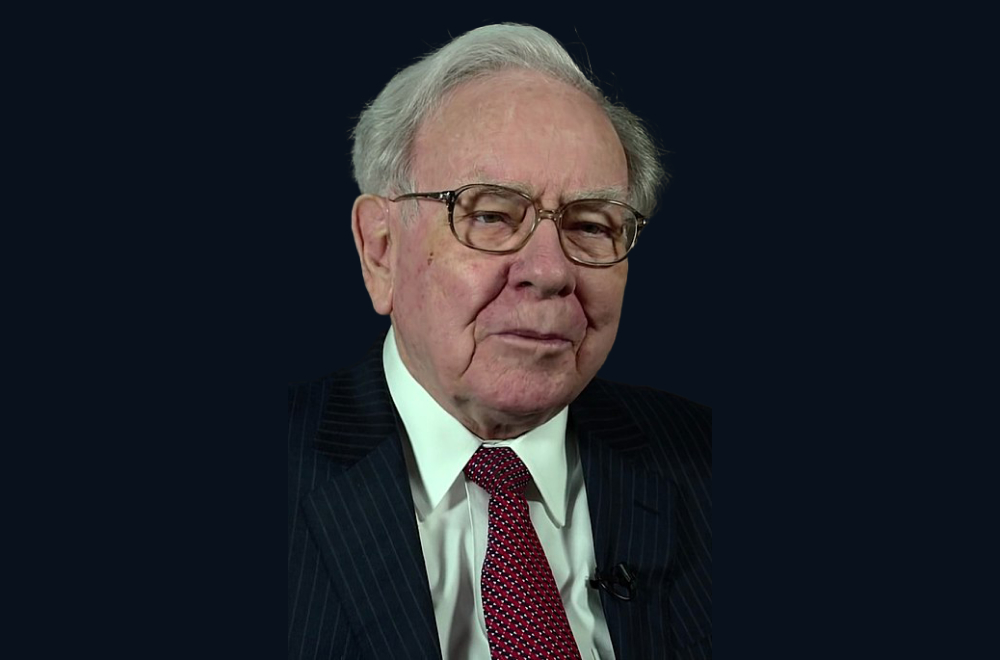
Want to Become a Millionaire? Follow Warren Buffett’s 4 Rules
| 4 minutes read
Everyone wants to become an entrepreneur, but only a few become successful entrepreneurs. We always relate entrepreneurs with money and fame. But no one thinks about what all they had sacrificed to reach that position, and after the Pandemic, things get worse. Unfortunately, around 20percent of the entrepreneur quit their companies and started working as an employee in some companies.
Every newbie entrepreneur wants to start his entrepreneurial journey with a bang and become a millionaire. But do you think it is easy to be a millionaire in a one-shot? It’s not impossible, but it’s too complicated; therefore, we need to follow Warren Buffett’s 4 rules for success in this situation. What are they? To know those in detail, kindly read the blog till the end.
Who is a good entrepreneur? A person who intensively works and listens to their market and customers during difficult times. Who innovating and making the business more accessible than before.
However, many of us are experiencing a different climate, especially after the pandemic. Customers’ purchasing potential, demand, and production have been changed. The question is, in this volatile, how can one survive and be a billionaire? Here are those four rules created by the CEO of Berkshire Hathaway.
In four terms, we believe we can sketch out what we need to achieve now: Consider and Follow Warren Buffett’s 4 Rules.
1. Pay off your savings account first.
The first thing you should do is pay yourself first; make it a habit of paying 20percent of the income in your savings. Too many business owners invest their lifetime amount of money in their business, and if something goes wrong in their business, they take the big exit. “You can always recognize the entrepreneurs in a group,” said an expert and friend who had 29 firms before the outbreak. They have the essential tales. Then, very consistently, they die broke.”
The most financially secure people are statistically the ones you would least anticipate. They are regular people who have exercised financial limitations. They don’t wait till “we can afford it” or “when we quit our firm” to save and invest.
They are those who spent the thinnest amount of money on luxury items or in high-risk ventures. Yet, those people are good at financial decisions, and they learn from an early age.
2. Be conscious about overpaying on designer labels.
As Buffett suggests, consider buying your automobiles (luxury or not) gently used.
If you buy a luxury property or a luxury car, make sure it’s in a position that can be readily resold or used as a full-time or part-time rental for extra income and tax benefits. If you’re buying a luxury car for a showoff and setting an example of class, then kindly avoid it. Try to make money from what you buy; this is what most people don’t understand. If you buy a home or car, give them on renting purpose and earn from those things you invested. For instance, Elon Musk, the founder of SpaceX and the world’s richest person, is still living in a rented home in the US.
Only 20% of your income or investment earnings should be allocated to “the three ‘f’s”: food, fashion, and fun. Here’s how to think about luxury companies in a different way. Consider your purchase as an investment when you do indulge. Are the style and quality timeless and classic? Is it something you could adapt and wear for the next two or three decades?
3. Use your bank balance in mind while taking out loans.
Buffett has often observed, “If you acquire things you don’t need, you’ll soon sell things you need.” Credit cards can waste the most money and savings. A credit card is like alcohol; you will use it again if you start using a credit card. You instantly think you’re not spending money from your savings, but at the month-end, when you pay the credit card bills bank charge the amount along with interest.
If you follow Buffett’s lead, you’ll run your business almost exclusively on cash. If we opt for a loan, try not to exceed the loan amount and make sure you pack back the loan amount in the given time.
4. Be considerably more cautious when investing in borrowed funds.
Buffett, for the record, has warned against borrowing money to invest in equities on several occasions. However, Buffett’s important tidbit sent to financial advisor Adiel Gorel in a personal note may be an exception to Buffett’s credit avoidance.
Following an MSNBC interview in 2012, Gorel received a call from Buffett. Buffett’s oft-stated stance regarding the desirability of owning or refinancing homes on fixed-rate 30-year mortgages, which are customary in the United States but not so readily available in most other countries, was mentioned by Gorel on the radio.
A fixed-rate loan on a single-family house (as opposed to multi-tenant homes of any sort) allows inflation to reduce the payment and amount of your loan over time while also enabling the rent your renter pays to contribute to the monthly repayment of the loan principal.
Gorel praised Buffett for recognizing single-family houses as a viable investment on the radio, noting that he (and Berkshire) would buy many of them if they had the funds. After that, he discovered Buffett was keeping an eye on him. As a result, he launched a dialogue, offering his company’s aid in facilitating the bulk purchase. “To make it reasonable for Berkshire, we’d need to invest around $10 billion…” wrote Buffett.
Recommended Post: Successful Entrepreneurs That Started With No Experience

Born in the family of entrepreneurs and have inherited the same. Started building applications in order to pay for my tuition. Later founded a tech company, marketing agency, and media outlets.



